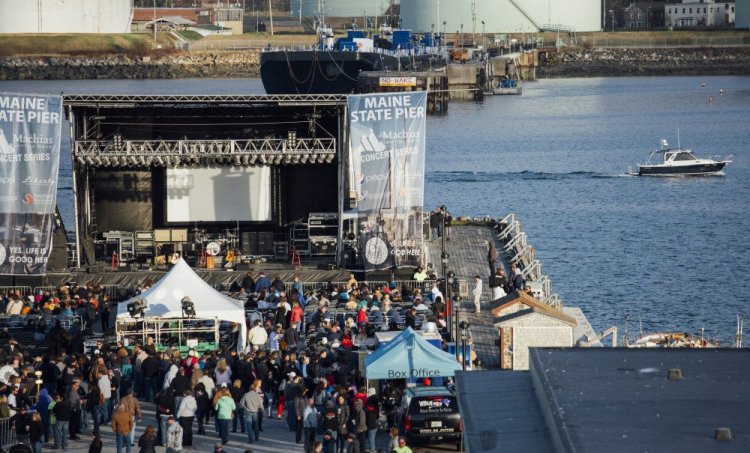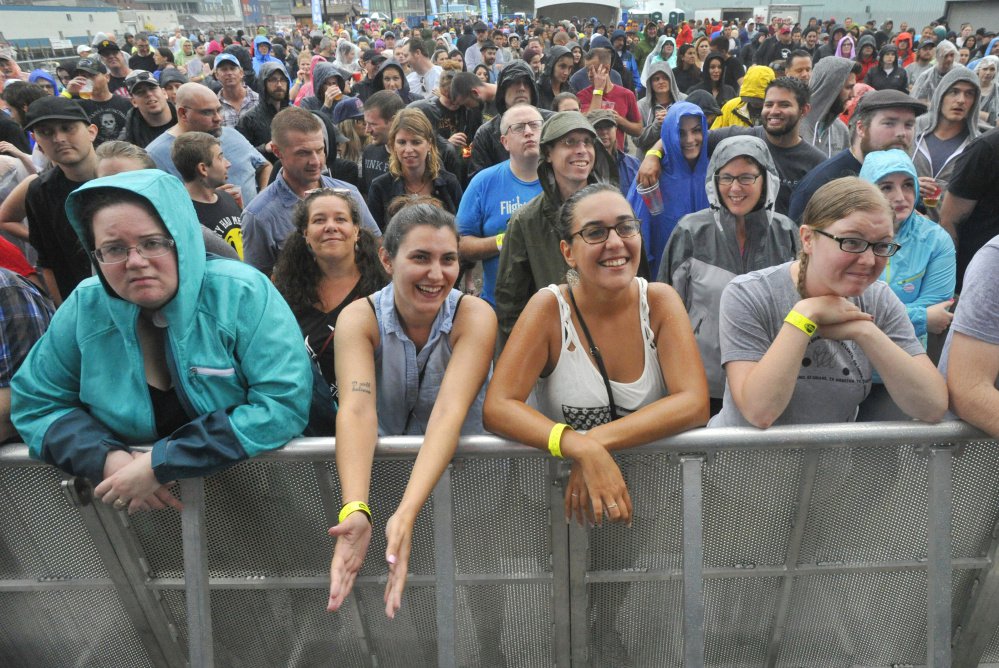The Portland City Council voted unanimously Monday night to approve another season of summer concerts on the city-owned Maine State Pier.
But that approval came with the caveats that Bangor-based promoter Waterfront Concerts would not put on as many shows as in the past and that additional measures would be taken to respond to complaints. City staff will take those issues into account during the permitting for each show.
Councilors also agreed to re-examine the city’s noise ordinance and possibly monitor sound throughout the city. Councilors also will discuss the future of the pier.
“I do see they’re working on this and they’re trying to be a good neighbor,” said City Councilor Belinda Ray, who received many complaints last year as the representative of the East End district that includes the state pier. “I want to give them one more chance to get the sound right.”
In the coming weeks, councilors probably will hold a workshop to discuss the future of the concert series. If it continues beyond 2017, more permanent improvements may be made at the pier, including the addition of some sort of sound shell or covering.
The concert series has approached 30 concerts in each of the past two years, annually drawing more than 50,000 to the city and infusing $100,000 into municipal coffers through licensing fees.
QUALITY-OF-LIFE COMPLAINTS
But some local residents have complained that the noise and frequency of the events, including a nine-day stretch last year with eight concerts, have been detrimental to their quality of life.
Most of those complaints have come from Munjoy Hill residents, but people in South Portland, Cape Elizabeth and Falmouth occasionally hear the concerts, too.
Councilors were sent a petition last week that was signed by 35 people, asking that the concerts be moved from the pier.
But public comment on Monday night was split among opponents and supporters.
“It’s a waterfront assault. It’s physically painful,” Peaks Island resident Arthur Fink said in a loud voice, referring to the concert volumes while he waits for the ferry at the nearby Casco Bay Lines.
Sharon Murphy is anxious about the upcoming season, saying that she has to leave her Portland Pier condominium during concerts.
The concerts also are too loud for Jeff Aumuller, a musician who lives on his boat. “When the band is rocking my boat vibrates,” he said, noting that other boat owners experience the same thing.
Supporters of Waterfront Concerts said they enjoy the energy that the concert series brings to the city. “It’s kind of a signature of Portland,” said Nicholas Martin, who lives on Commonwealth Drive.
Waterfront Concerts founder Alex Gray has said touring bands will be required to use its new $750,000 sound system, which allows sound engineers to better aim and control the sound. Last season, some acts used their own systems, leading to complaints, he said.
Gray said Monday that he’d also like to partner with the city to establish fixed-point sound monitoring that would record sound levels in real time, allowing the city to get a better understanding of ambient noise as well as the true impact of the concerts.
He also believes it would help if all of the complaints – which are currently spread throughout various mediums such as websites, emails to councilors and phone calls to police – are consolidated and communicated to the event staff.
“We’re never going to get those complaints to zero,” Gray said. “Sometimes when you make a correction to someone’s complaint, you make a new one.”
Event workers regularly monitor decibel levels at the venue, as well as in response to complaints.
DECIBEL LEVELS REMAINED STEADY
An analysis by the Portland Press Herald revealed that the decibel levels were basically the same in 2016 as they were in 2015, and that the loudest shows in terms of decibel levels didn’t always generate the most complaints.
As of mid-August, the number of complaints received by the police department’s nonemergency dispatch number were down from the 36 received over the same period in 2015. By the end of the 2016 season, the number of complaints reached 45, surpassing the 2015 level, according to a city analysis. Most of the complaints were made on Thursday nights. Concerts during August and September produced 17 complaints and 13 complaints, respectively.
Send questions/comments to the editors.





Comments are no longer available on this story